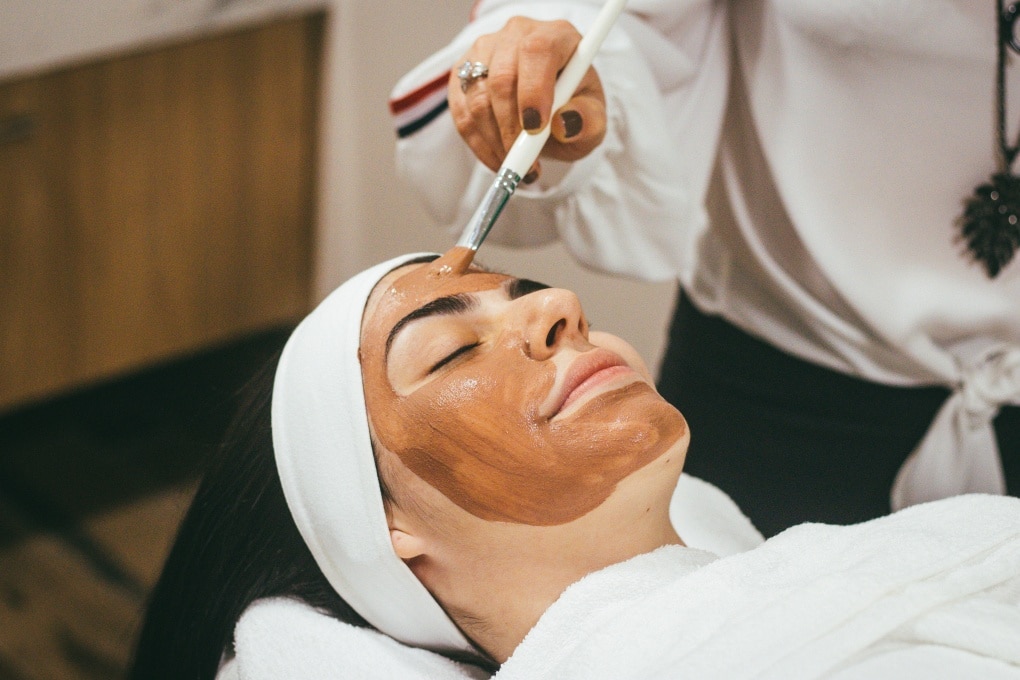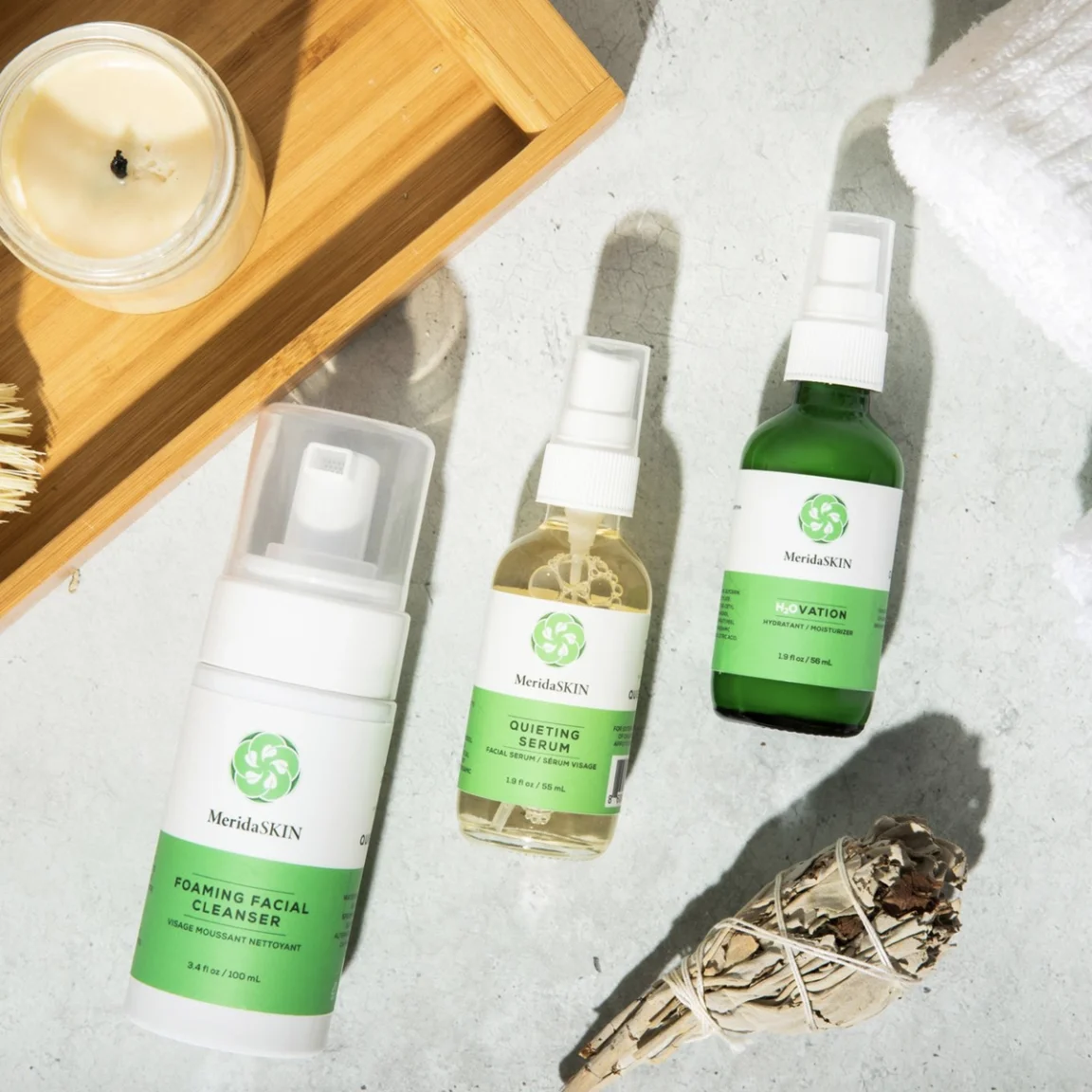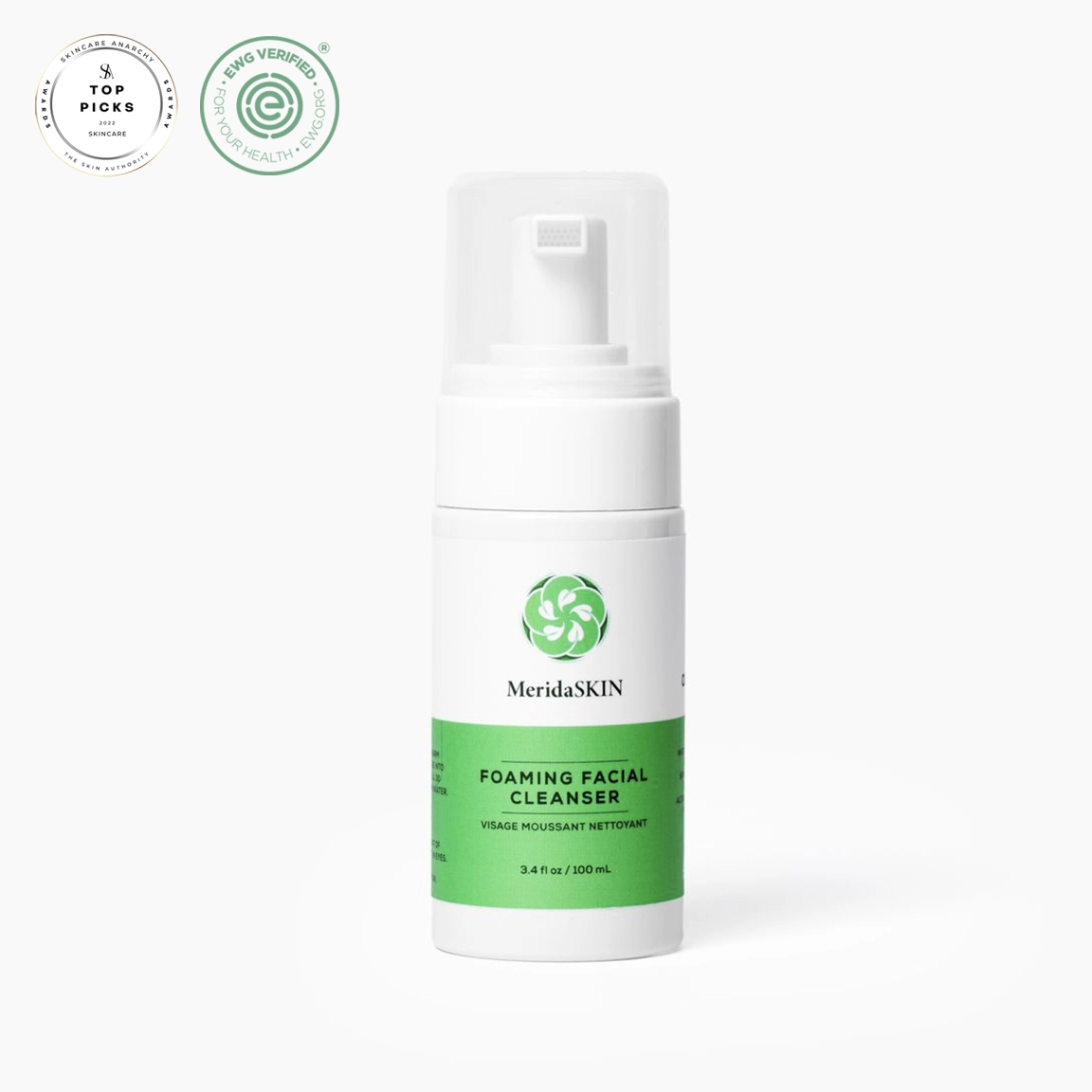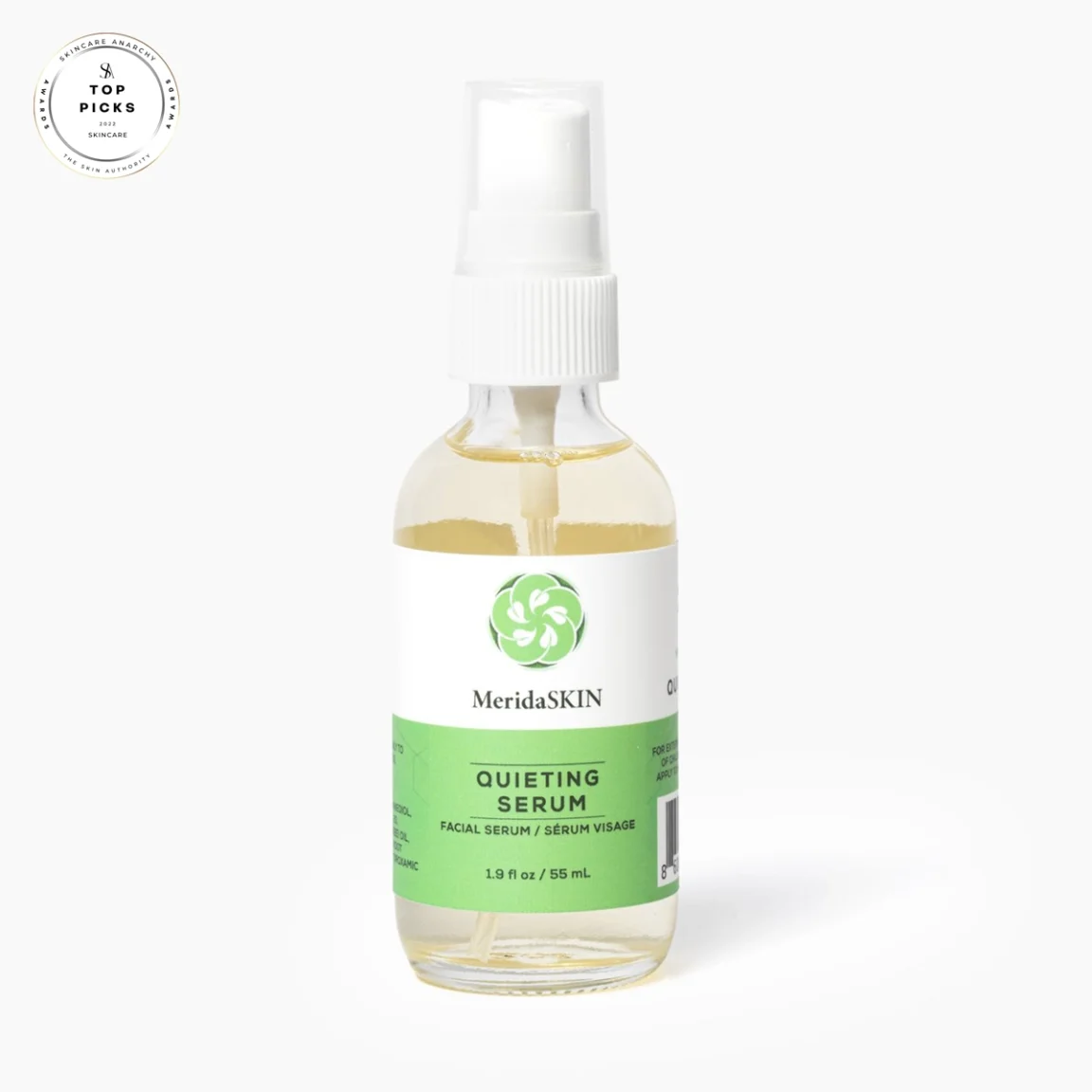It may seem like facials for rosacea are a great way to ease symptoms. For people with problem-free skin, facials can be a supportive skincare tool. For folks with rosacea, however, facials can actually cause more pain and irritation thanks to the nature of how they’re done. Harsh exfoliation, heated towels, and high-irritation cleansers are the opposite of what your sensitive skin needs.
This doesn’t mean facials for rosacea are out of the question—it just means there are some things you want to look out for (and avoid) to keep your skin happy and irritation-free. Here are the top three aspects of facials to avoid next time you’re at the spa. Plus, a few tips for everyday changes you can make to take care of your sensitive skin without facials.
Avoid: Rubbing and Scrubbing
The technical term for this is mechanical exfoliation and it’s a big no-no for the sensitive skin of rosacea. Gritty or micro-beaded exfoliating products, also commonly used during facials, are similarly bad for rosacea-prone skin.
These practices lead to more aggravation, and scrubbing can put pressure on delicate blood vessels near the surface of the skin. This can cause your blood vessels to break or become more prominent, leading to more redness and pain.
In addition, scrubbing and exfoliation can also:
- Disrupt the skin barrier
- Increase flushing
- Worsen sensitivity
- Potentially cause microscopic damage
Avoid: High-Irritation Products
If you’ve ever had a facial, you know they use dozens of products in one session. The problem with facials for rosacea-prone skin is that many of these products are made with high-irritation and/or high-allergenic ingredients that you should be avoiding. This includes cleansers with sulfates, like sodium lauryl sulfate and sodium laureth sulfate.
You also want to avoid leave-on products that are commonly used during facials, like toners, serums, and moisturizers, with ingredients such as:
- Non-fatty alcohols (e.g. benzyl alcohol)
- Parabens (e.g. butylparaben, methylparaben, propylparaben)
- Phenoxyethanol
- Fragrance/parfum
Avoid: Hot Towels
The hot towel on your face feels so good—but it’s also a nightmare for sensitive skin because it can exacerbate the condition. Rosacea is characterized by inflammation, redness, and sensitivity, and certain triggers (like hot water or a hot towel) can trigger or worsen those symptoms.
Here are a few specific ways the use of hot towels during a facial can impact your skin:
- Increased flushing and skin aggravation
- Potential vessel damage
- Skin barrier disruption
- Increased redness and irritation
How to Get a Facial for Rosacea-Prone Skin
If you want to get a facial, you have to be clear and upfront about what you do and don’t want to be included. Remind the facialist of your condition and advocate for yourself by:
- Asking to avoid all scrubbing or exfoliating products and use of a hot towel.
- Inspecting the product labels to check for harsh chemicals. When looking at the label, remember that the higher the ingredient appears in the list, the higher the risk for your sensitive skin.
- Requesting minimal product use in general. It doesn’t have to be complicated to be soothing and supportive for your skin.
Some spas and salons will have “rosacea-friendly” facial packages, but make sure you triple-check what’s included. Not everyone follows or understands these best practices entirely, or at all. When you know what to avoid, you can set yourself up for an experience that doesn’t leave your skin feeling worse.
Everyday Changes for Sensitive Skin
Facials for rosacea-prone skin aren’t all they’re cracked up to be. Plus, it may be challenging to find someone who is willing to make all the changes you need to avoid harming your skin further. Instead of getting a facial, you can ease symptoms and calm your skin by making small changes to your everyday skincare routine. Here are a few areas to consider:
- Cleansing: Use a gentle, fragrance-free cleanser that doesn’t contain harsh surfactants or exfoliants. Opt for a cleanser, like our Tea Tree Foaming Facial Cleanser. It’s formulated specifically for sensitive and rosacea-prone skin.
- Moisturizing: Apply a lightweight, non-comedogenic, and hydrating moisturizer to maintain the skin’s barrier function and reduce dryness. Our Shea Butter Moisturizer for Sensitive Skin does exactly that, thanks to the use of gentle, plant-based ingredients and a lack of harsh chemicals.
- Sun Protection: Always apply SPF30+ on top of your sensitive-skin moisturizer when you expect to be in the sun. When choosing a sunscreen, opt for a mineral-based product with zinc oxide as the active ingredient. Zinc Oxide is soothing and provides broad-spectrum protection. It’s also one of only two sunscreen actives that have been designated by the U.S. FDA as safe and effective.
- Triggers: Identify and avoid triggers that can exacerbate rosacea, such as spicy foods, alcohol, extreme temperatures, and certain skincare products. This is different for everyone, so tune into how your skin reacts and make changes as needed.
Take Care of Your Sensitive Skin
Are facials for rosacea actually a good idea? Typically, the answer to this is no. Harsh chemicals, scrubbing, and heat will all leave your skin feeling worse than before you started. Instead of paying for an expensive facial that’s not supportive, focus on changing your skincare routine to provide everyday relief and long-term healing. The Merida Essentials: Skincare for Sensitive Skin is a trio of our three rosacea-safe products and a great place to start!
Rosacea-Friendly Skincare
-
Merida Essentials: Skincare for Sensitive Skin
$108.00 -
Tea Tree Oil Foaming Facial Cleanser
$23.00 — or subscribe and save up to 12% -
Tea Tree Oil Serum for Sensitive Skin
$48.00 — or subscribe and save up to 12%

Shannon L. Johnson NP-C
Founder & Formulator, MeridaSKIN
Shannon is a nurse practitioner, and much of her career has served vulnerable populations at a community health center. She holds degrees from the University of Pennsylvania and Simmons University, and completed post-graduate training at the University of Massachusetts Boston. She tackled the science of cosmetic formulating to solve her own skin struggle with rosacea. Shannon was born in Oregon, raised in Eastern Massachusetts and has passionate ties to the Pacific Northwest, New England, and the mid-Atlantic. She lives on Boston's North Shore with her husband, two kids and mischievous Wheaten Terrier. She and her family pass the seasons by playing in water (liquid and solid).





Recent Comments